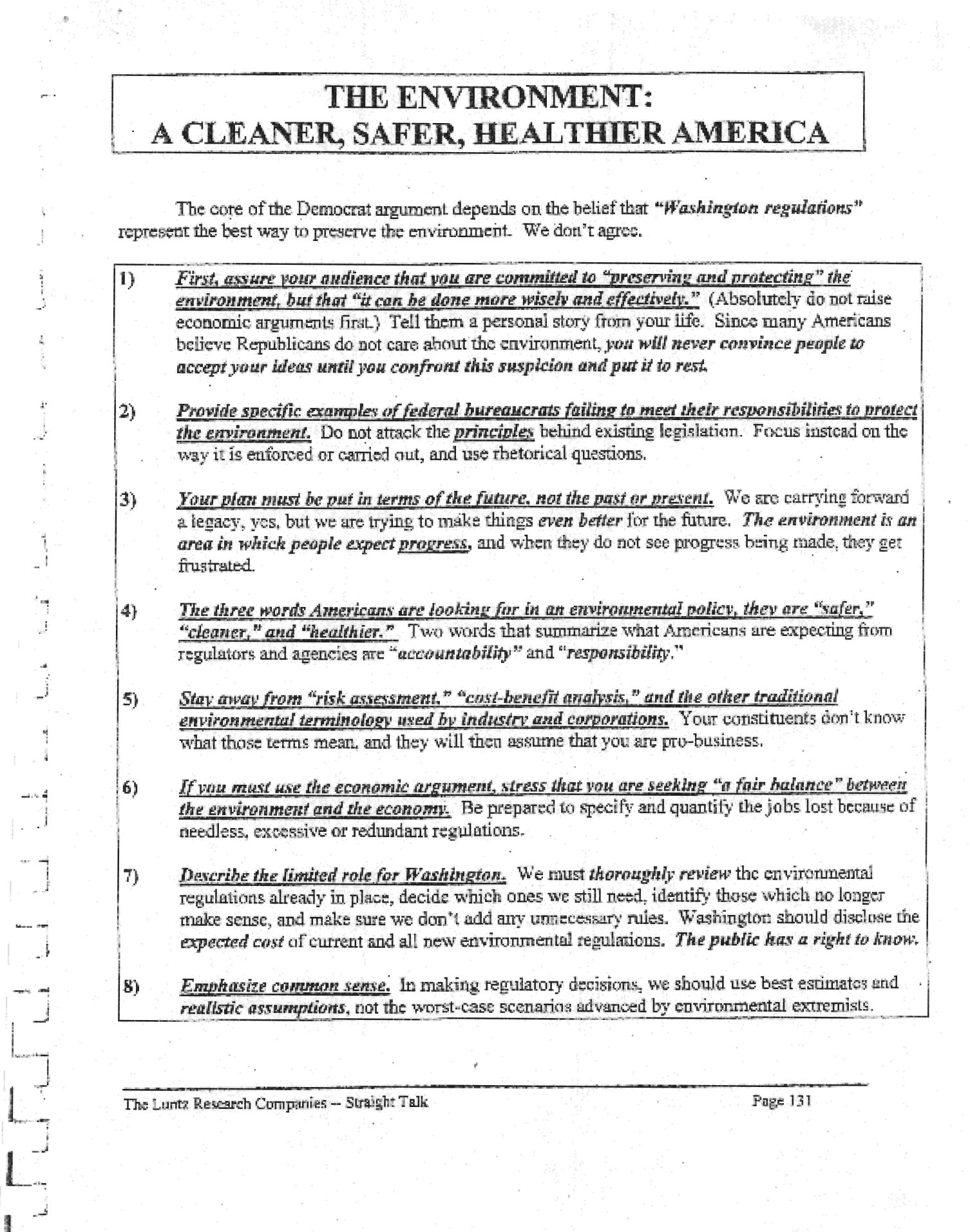
The Luntz Memo: Controlling the Narrative
In a now-infamous memo, GOP advisor Frank Luntz outlined a strategy by which Republicans could seize control of the narrative around climate change. He encouraged them to cast doubt on the science of climate change and to tell stories that would resonate emotionally even if they were factually wrong.
Even after they had pushed out Newt Gingrich, the GOP embraced his tactics and retained his marketing guru as its top strategist and chief narrative officer. Luntz had proved himself an expert “pol whisperer” who knew how to use the right language to win votes while blurring actual positions on issues.
In that same memo, he told them, “As Republicans, we have the moral and rhetorical high ground when we talk about values, like freedom, responsibility, and accountability.” His words played to both the politically savvy Reagan Republicans and the true believers in the patriotic divisions that he and Gingrich had laid out 10 years earlier.
The memo explained exactly how he wanted Republicans to talk about the environment, and climate change in specific. Ignoring the party’s long-held and very public pro-business positions for lower taxes, more deregulation, and shrinking the federal government, he argued that it was the Democrats who constructed “a narrative in which Republicans and conservatives are the bad guys.” Rather than suggesting they modify their positions to soften that image, he encouraged members to use language that would help them avoid being labeled as pro-business.
“It can be helpful to think of environmental (and other) issues in terms of ‘story’”, he wrote near the start of the memo. “A compelling story, even if factually inaccurate, can be more emotionally compelling than a dry recitation of the truth.”
He urged his Republican clients to believe there was no consensus on global warming, and so they needed “to continue to make the lack of scientific certainty a primary issue in the debate”. And he pressed them to stop using the term “global warming” as it was too frightening, and to instead refer to “climate change” because it sounds like “a more controllable and less emotional challenge.”
By 2008, climate change had replaced global warming in the national narrative while most elected Republicans continued to cast doubt on its existence.

